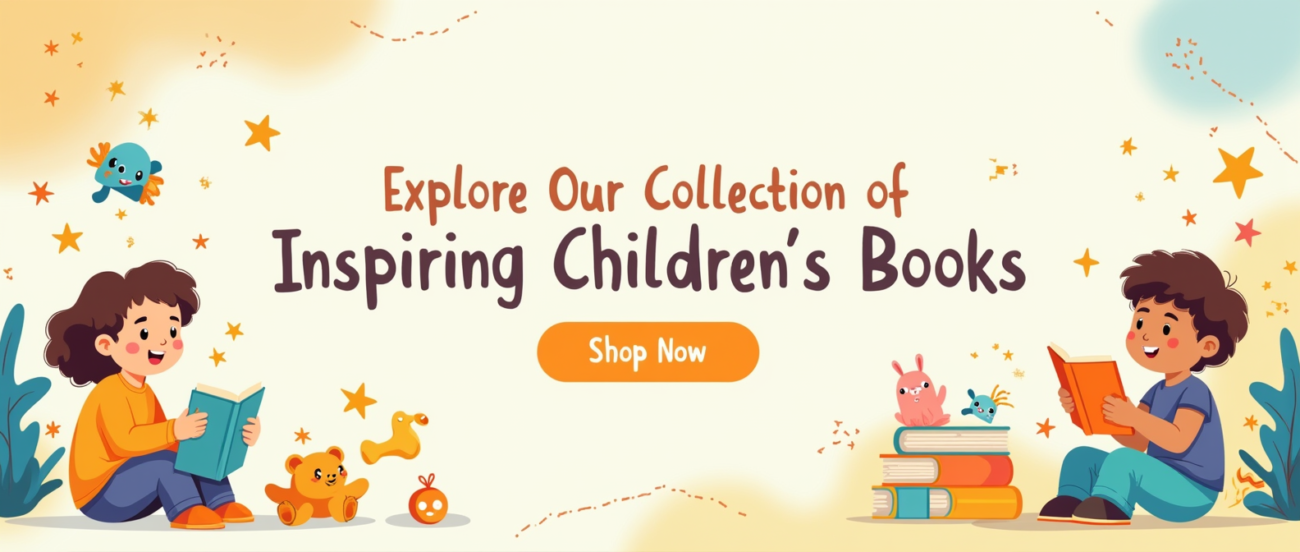In today’s rapidly evolving digital world, artificial intelligence (AI) is becoming a powerful force in shaping the future. From voice assistants like Siri to automated customer service, AI is already embedded in many aspects of our daily lives. But as this technology advances, there’s a growing need to ensure that the next generation is not only tech-savvy but also ethically aware of the responsibility that comes with it. Books on AI for kids offer a perfect tool to introduce complex ideas like ethics and responsibility in a way that’s engaging and easy to understand.
Why Teaching AI Ethics to Kids is More Important Than Ever
As AI continues to influence nearly every aspect of life, children are becoming increasingly exposed to this technology. From the gadgets they use to the educational tools they interact with, AI is woven into their everyday experiences. However, with great power comes great responsibility. It’s essential that kids learn the ethics behind AI systems, including issues like bias, privacy, fairness, and accountability. Without this knowledge, the future generation may become passive consumers of technology rather than thoughtful, responsible creators and users.
AI in Kids’ Lives Today
Your child might already be familiar with AI through smart home devices, video games, and apps. Technologies like Google Assistant, Alexa, or YouTube use AI to interact with users, offering personalized experiences based on data. In education, AI-driven platforms are revolutionizing learning by adapting to individual needs, offering a more personalized approach. While these technologies bring numerous benefits, they also raise questions about how they influence children’s thoughts and behaviors, making it crucial to teach them the ethical implications of their digital interactions.
What Does AI Ethics Mean for Kids?
AI ethics might seem like a complex topic, but it’s something your child can begin to grasp with the right guidance. At its core, AI ethics is about understanding fairness, transparency, and responsibility in the creation and use of artificial intelligence. Teaching these concepts helps children think critically about how AI is designed, who it benefits, and how it affects society. By introducing kids to these principles early on, you’re setting them up to be more responsible users and creators of technology in the future.

How Books on AI for Kids Can Teach Ethics and Responsibility
Books are a powerful tool for teaching kids difficult concepts in an accessible and engaging way. When it comes to complex subjects like AI ethics, storytelling can make abstract ideas tangible. By introducing kids to these ideas through stories, you make it easier for them to understand and reflect on the ethical dilemmas they’ll face as future digital citizens.
Storytelling as a Tool for Ethical Lessons
Children naturally connect with stories, and this makes books an ideal way to teach them about the ethical aspects of AI. Fictional narratives bring abstract concepts like fairness and bias to life in a way that is relevant to their own experiences. For example, in a book, an AI character might make a mistake because of biased programming, prompting readers to reflect on the importance of designing AI systems that are fair and just.
Top Books on AI for Kids to Teach Ethics
There are several books that make AI ethics relatable and fun for children. Here are a few notable examples:
- AI Superheroes: The Ethical Dilemma
This book is perfect for kids aged 8 to 12. It follows a group of superheroes who use AI to help people, but they soon face dilemmas about fairness and responsibility. The story teaches kids about ethical decision-making and the consequences of AI’s actions. - The Robot’s Promise
Aimed at children aged 10 to 14, this book delves into the complexities of privacy and data protection. It follows a young protagonist who befriends a robot and learns about the importance of keeping personal data secure in a world that’s increasingly digital. - AI Adventures
Targeted at older kids, ages 12 and up, this book tackles AI bias and transparency. Through a series of adventures, the characters discover how AI systems can perpetuate bias and the importance of creating more inclusive and transparent AI technology.
These books offer a perfect blend of engaging narratives and essential ethical lessons, helping your child to understand AI in a way that is both entertaining and thought-provoking.
Combining Fun and Learning in AI Books
The best part about these books is that they don’t just teach kids about ethics in a dry, technical way. Instead, they use fun, relatable scenarios to make these important lessons stick. The combination of adventure, problem-solving, and ethical challenges encourages children to think critically about the role of technology in their lives.

Key Ethical Concepts to Teach Through Books on AI for Kids
When teaching your child about AI, there are a few key ethical concepts that will form the foundation of their understanding. These are topics they will encounter in everyday life as AI continues to evolve and integrate into society.
The Dangers of Bias in AI
AI systems are only as good as the data they’re trained on. If an AI system is trained on biased data, it can make biased decisions. This is particularly concerning in areas like hiring, education, and criminal justice, where AI can unintentionally perpetuate discrimination. Through stories in books, kids can learn about the consequences of biased AI and understand why fairness should always be a key consideration in technology design.
Privacy and Data Protection
In the digital age, privacy is a growing concern, especially for kids. AI systems collect vast amounts of data, and it’s crucial for children to understand the importance of safeguarding their personal information. Books on AI can explain how data is collected and used, helping kids recognize the value of their own privacy and why they should be cautious when sharing information online.
Accountability in AI Systems
Another important concept is accountability. When AI systems make mistakes or cause harm, who is responsible? Is it the creator of the AI, the user, or the AI itself? Teaching kids about accountability helps them understand that AI systems need to be designed with transparency and oversight, ensuring that they are always held accountable for their actions.
Practical Ways to Use Books on AI for Kids in Teaching Ethics
Reading books is just the beginning. To reinforce these lessons and spark deeper thinking, you can incorporate interactive activities and discussions that bring the concepts to life.
Incorporating Books into Classroom Discussions
Whether you’re a parent or educator, discussing the ethical dilemmas presented in these books can be a powerful way to engage children. After reading a book, ask open-ended questions like, “What would you have done if you were the character?” or “How could the AI have made a better decision?” These discussions encourage kids to think critically about the moral implications of AI and understand that technology has a profound impact on society.
Activities and Projects to Reinforce Learning
To make these lessons stick, consider incorporating hands-on activities such as:
- Creating Your Own AI Character: Ask kids to design their own AI system, considering ethical dilemmas it might face.
- Debate AI Ethics: Host a debate where kids take on different roles (AI creator, user, or regulator) to discuss ethical issues like fairness, privacy, and accountability.
- Write an AI Story: Have kids write their own stories where AI must make an ethical decision, allowing them to explore the challenges and consequences.
The Future of Teaching AI Ethics to Kids Through Books
As AI continues to evolve, the way we teach kids about it must also adapt. The future of AI books for kids might include more interactive features, such as augmented reality, allowing kids to engage with the content in new and exciting ways. However, the core lessons of ethics, fairness, and responsibility will always remain central, ensuring that children are prepared to use and shape AI technology ethically.
Conclusion: Shaping Responsible Digital Citizens of Tomorrow
AI is the future, and teaching kids about the ethical implications of this technology is more important than ever. By introducing books on AI for kids into your child’s learning, you’re not only helping them understand how AI works but also instilling in them a sense of responsibility. Through engaging stories and interactive activities, children can learn valuable lessons about fairness, bias, privacy, and accountability—lessons that will guide them as they grow into the ethical innovators of tomorrow.
FAQ Section: Using Books on AI for Kids to Teach Ethics and Responsibility
- What are the best books on AI for kids to teach ethics?
- Recommended titles include AI Superheroes: The Ethical Dilemma and The Robot’s Promise. These books are great for teaching kids important ethical concepts in an engaging way.
- How can books on AI for kids help children understand ethics?
- Books use storytelling to simplify complex topics like fairness, bias, and privacy, making it easier for kids to understand how AI impacts society.
- At what age should I start teaching my child about AI ethics?
- Start as early as 8 years old with simple, age-appropriate books. As they grow older, you can introduce more complex ideas and stories.
- Are there interactive AI books for kids?
- Yes! Some books incorporate augmented reality or digital elements to enhance learning and engagement.
- Can teaching AI ethics through books help children with their understanding of technology in the real world?
- Absolutely. By reading about AI ethics, kids become more thoughtful and responsible digital citizens, ready to navigate the challenges of the future.


